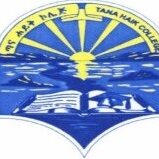Bachelor of Accounting and Finance at Tana Haik College: Building Financial Expertise for a Dynamic Economy
The Bachelor of Accounting and Finance program at Tana Haik College is designed to equip students with a solid foundation in accounting principles, financial management, auditing, and taxation. The program prepares graduates to excel in a range of professional roles within the business world, including accounting, auditing, financial analysis, and corporate finance.
Program Objectives
The main objectives of the Accounting and Finance program are to:
- Provide students with comprehensive knowledge of accounting systems, financial reporting, and management.
- Develop critical thinking and analytical skills needed to assess financial performance and make informed business decisions.
- Equip students with practical skills in financial planning, investment analysis, and corporate finance management.
- Foster ethical responsibility and understanding of regulatory standards in accounting and finance practices.
Core Areas of Study
The Bachelor of Accounting and Finance program covers a wide range of topics, blending both theoretical knowledge and practical applications. Key areas of study include:
- Financial Accounting
- Introduction to the principles of accounting, including the preparation of financial statements and the analysis of financial transactions.
- Focus on generally accepted accounting principles (GAAP) and international financial reporting standards (IFRS).
- Management Accounting
- Topics include budgeting, cost control, and financial decision-making for internal business purposes.
- Emphasis on the use of accounting information for managerial planning, performance evaluation, and strategic decision-making.
- Auditing and Assurance
- Covers the process of auditing financial statements to ensure their accuracy and compliance with regulations.
- Focus on internal and external auditing techniques, as well as auditing standards and ethics.
- Corporate Finance
- Introduction to financial management concepts such as capital budgeting, risk management, investment analysis, and working capital management.
- Students learn how to make investment decisions and manage the financial resources of an organization.
- Taxation
- Understanding of tax laws, including income tax, corporate tax, and VAT.
- Students learn to prepare tax returns and develop strategies for tax planning and compliance.
- Financial Reporting
- Advanced study of financial reporting processes and standards, focusing on financial analysis and interpretation.
- Students learn how to communicate financial information to stakeholders and use financial reports for decision-making.
- Investment Analysis
- Covers the fundamentals of investments, including securities, portfolio management, and risk assessment.
- Emphasis on analyzing financial markets and investment strategies to maximize returns.
- Public Sector Accounting
- Explores accounting principles and practices specific to governmental and non-profit organizations.
- Focus on the preparation and analysis of public sector financial statements, budgeting, and financial management in public institutions.
Practical Training and Internships
The program emphasizes hands-on experience through internships, case studies, and real-world projects. Students are encouraged to apply the skills learned in the classroom to practical scenarios in the business world. Internship opportunities with local businesses, government agencies, and financial institutions help students gain valuable experience and build professional networks.
Career Opportunities
Graduates of the Bachelor of Accounting and Finance program at Tana Haik College are well-prepared for a variety of career paths, including:
- Accountants: Working in businesses, government agencies, or accounting firms, graduates manage financial records, prepare financial reports, and ensure regulatory compliance.
- Auditors: Conduct audits of financial statements and ensure accuracy and adherence to accounting standards.
- Financial Analysts: Analyze financial data, assess investment opportunities, and provide recommendations to businesses or individual clients.
- Tax Consultants: Help organizations and individuals with tax preparation, tax planning, and ensuring compliance with tax laws.
- Corporate Finance Managers: Manage the financial operations of businesses, including budgeting, financial planning, and investment strategies.
- Banking and Financial Services: Work in roles such as financial advisors, loan officers, or investment bankers.
Ethical and Professional Development
The program at Tana Haik College also emphasizes the importance of ethical practices in accounting and finance. Students are taught to adhere to professional codes of conduct, regulatory standards, and the importance of transparency in financial reporting.
Pathway to Professional Certification
The Bachelor of Accounting and Finance program provides a solid foundation for students who wish to pursue professional certifications such as:
- Certified Public Accountant (CPA)
- Chartered Financial Analyst (CFA)
- Certified Management Accountant (CMA)
These certifications can enhance career prospects and provide additional opportunities for advancement in the accounting and finance field.

